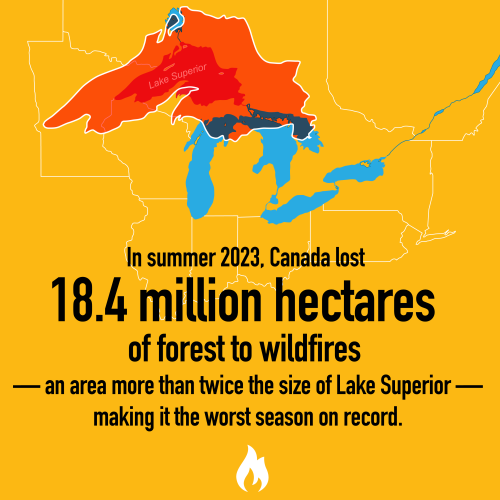
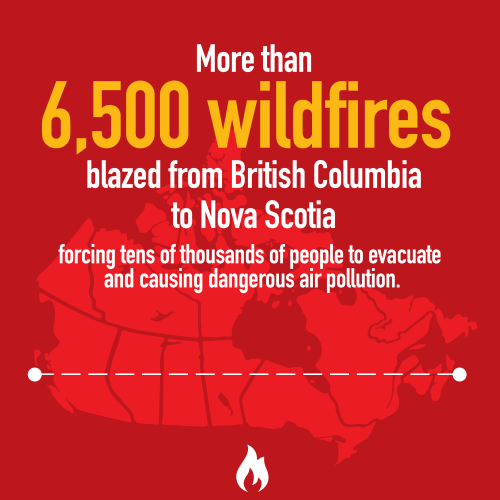
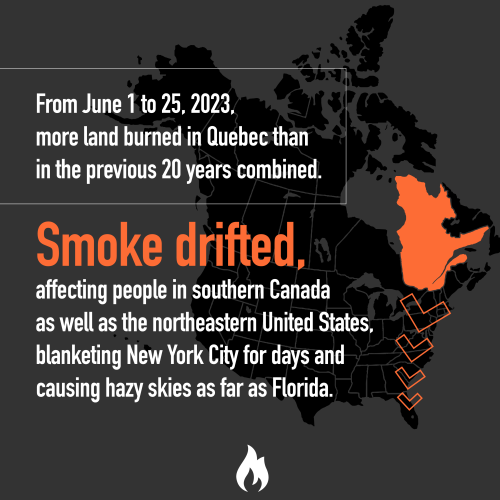

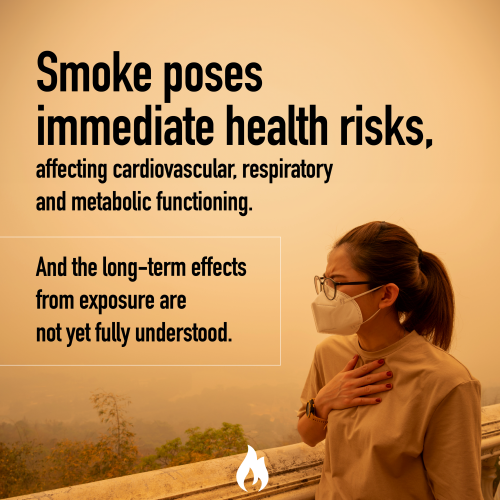
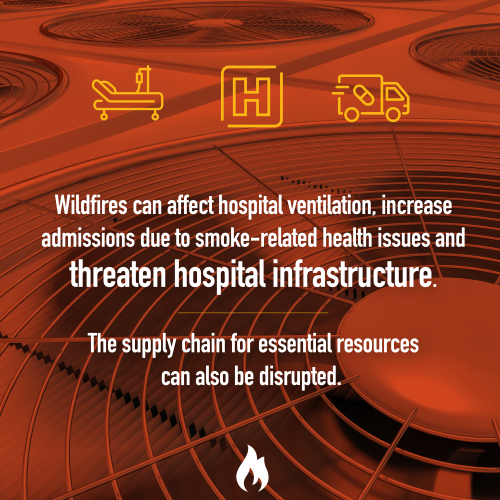
Canada is home to about 10% of the world’s forests. One third of this land has burned in the past 40 years.
In 2023, more than 1.7 billion tons of planet-heating gases were released by Canada’s wildfires, amounting to three times Canada’s total annual greenhouse gas emissions.
Wildfires, flooding and other extreme weather events are worsened by climate change.
Did you know?
Canada’s health care system is responsible for 4.6% of total greenhouse gas (GHG) emissions —more than both more than aviation and shipping. This makes Canada one of the worst health care polluters per capita in the world.
“Climate change is inextricably linked to health. That’s why the World Health Organization identified climate change as this century’s single biggest health threat. Slow action is akin to no action.”
— Dr. Kathleen Ross, CMA president
Advocacy for a healthier planet
The Canadian Medical Association’s ongoing work to address the health impacts of climate change involves creating a net-zero emissions health system by 2050.
As part of achieving this goal, the CMA is calling for the establishment of a climate and health secretariat in the federal government. Working with provincial, territorial and Indigenous governments and partners, the secretariat would develop a pan-Canadian approach to address the health impacts of climate change and create climate-resilient and low-carbon sustainable health systems.
The CMA has also set an ambitious target to reach net-zero greenhouse gas emissions in its investment portfolio by 2050.
Because climate change goes beyond any one organization, province or country, the CMA advocates at an international level as well. This year’s Climate Change Conference (COP 28) will include the first day dedicated to health on Dec. 3, bringing together governments and policy makers from around the world.
A health-centred approach to climate action can deliver a healthier planet and a thriving future for all.
